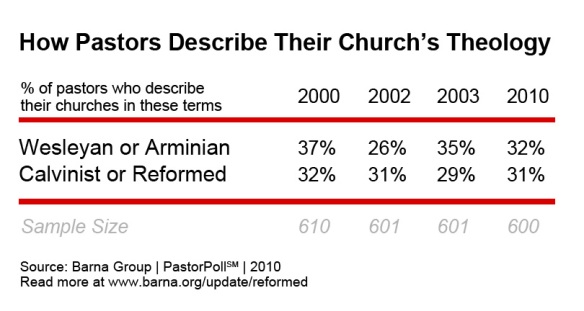Don’t touch my junk. Charles Krauthammer of the Washington Post wrote a column recently about this guy, John Tyner, who was asked to submit to a pat down in airport security because he refused the full-body scan (because of the full nude image it produces).
The TSA has recently instituted a new palms-in pat of the leg, and employees are told to run their hands up the inner thigh until they touch the groin.Tyner resisted the TSA employee who wanted to to the groin test, and actually said “If you touch my junk, I’ll have you arrested.” He had a video camera running during the ordeal, and it of course has gone viral.
Krauthammer:
The junk man’s revolt marks the point at which a docile public declares that it will tolerate only so much idiocy. Metal detector? Back-of-the-hand pat? Okay. We will swallow hard and pretend airline attackers are randomly distributed in the population.
But now you insist on a full-body scan, a fairly accurate representation of my naked image to be viewed by a total stranger? Or alternatively, the full-body pat-down, which, as the junk man correctly noted, would be sexual assault if performed by anyone else?
This time you have gone too far, Big Bro’. The sleeping giant awakes. Take my shoes, remove my belt, waste my time and try my patience. But don’t touch my junk.
Tyner’s blog post was forwarded to me by literally the last person in the world who would forward emails, so I knew it was a big deal before I saw the Krauthammer piece. Obviously, this is kind of disturbing. We’ll see if anything comes from this guy’s story, which has become quite the ordeal.
HT: Gene Edward Veith
There is no ‘New Calvinism’? So the rest of the internet already knows about the George Barna report that suggests the “New Calvinism” movement goes no deeper than perception. Primarily relying on clergy identity and church size, they postulate that the quantity of Reformed churches and pastors hasn’t changed hardly at all in the last seven years. Like so:

I was skeptical when I first heard about it, especially since the research included a large contingent of mainline churches. One of the distinctions of this movement is that it’s happening outside the mainline, and instead in non-denominational and “culturally liberal”* churches like Matt Chandler’s The Village in Texas and Mark Driscoll’s Mars Hill in Seattle.
Jamie Smith points out that the study was (a) unduly weighted on quantitative data and (b) carries an unclear definition of “Reformed.”
(a):
[T]his report is utterly naive about what constitutes cultural significance. It falls prey to what James Davison Hunter has criticized as the “grassroots” naivete of evangelicalism: the idea that there’s power in numbers. So if “the numbers” don’t show growth, then there’s no signficant shift–there’s no significant “Reformed movement.” But as Hunter shows, it’s not populist numbers that change culture: it’s the leadership power of “elites.” So even if there weren’t a groundswell of “new Calvinists” in the pews, there only has to be an upsurge of Calvinists in strategic positions of influence and leadership in order for it to make an impact on American evangelicalism. The Barna Report comes nowhere close to being able to measure something like that.
(b):
If you want the statistics, you don’t have to “ask the pastor.” Such a methodology already betrays a kind of nondenominational evangelical bias. But also please note, once again, that almost all observers of the “new Calvinism” has noted its growth outside”Reformed churches.” So not only does the Barna group have a naive, misguided methodology, they’re also measuring the wrong thing.
The whole post is worth reading. It’s worth remembering that Smith is denominationally Reformed, and so not in any way a member of the “New Calvinism” movement. As he says, he “has no dog in this fight.”
*This is Driscoll’s phrase, not mine.
Obligatory Michigan football thoughts. So, I don’t know what in the world happened in the Wisconsin game on Saturday, but Michigan didn’t have enough offense early and awful defense throughout and lost their fourth game in the exact same way they lost the first three. This team is bad.
On the other hand, Denard Robinson became the first player in NCAA history to run and throw for 1,500 yards each in a season (he’s actually thrown for over 2,000 and would reach 2,500 with a 240+ performance against Ohio State). The guy is super fun to watch, and yet his room for improvement (accuracy, feel for scrambling, consistency) is patently obvious. If he improves this offseason like he did last offseason, watch out. Because of guys like him and Roundtree and Taylor Lewan and (inexplicably) Forcier, this is the coolest bad team ever. I’ll probably post about the Ohio State game on Wednesday.
As for D. Robinson’s chances at the Heisman, they’re probably slim. But just for fun:
Passing yards: 2,229…2,038
Passing TDs: 16…21
Completion percentage: 63.4%…68.2%
Interceptions: 10…6
Rushing yards: 1,538…1,297
Rushing TDs: 14…17
The first number in each category is Denard Robinson’s. The second belongs to the Heisman favorite, Auburn’s Cam Newton. With the exception of completion percentage and turnovers (advantage Newton), the rest pretty much evens out: Robinson has a full game’s worth of more passing yardage, and two games more rushing yardage, while Newton has more touchdowns.
I’m not going to argue that Denard should win the Heisman, but I’m saying he should be considered, and he certainly should be in New York City for the ceremony. He’s run for more yardage than any quarterback in a season ever, and he’s the leading rusher in the NCAA, all on a 7-4 team.
But of course, his candidacy would be predicated on the Heisman committee relying on actual qualifications rather than politics, which LOL.



